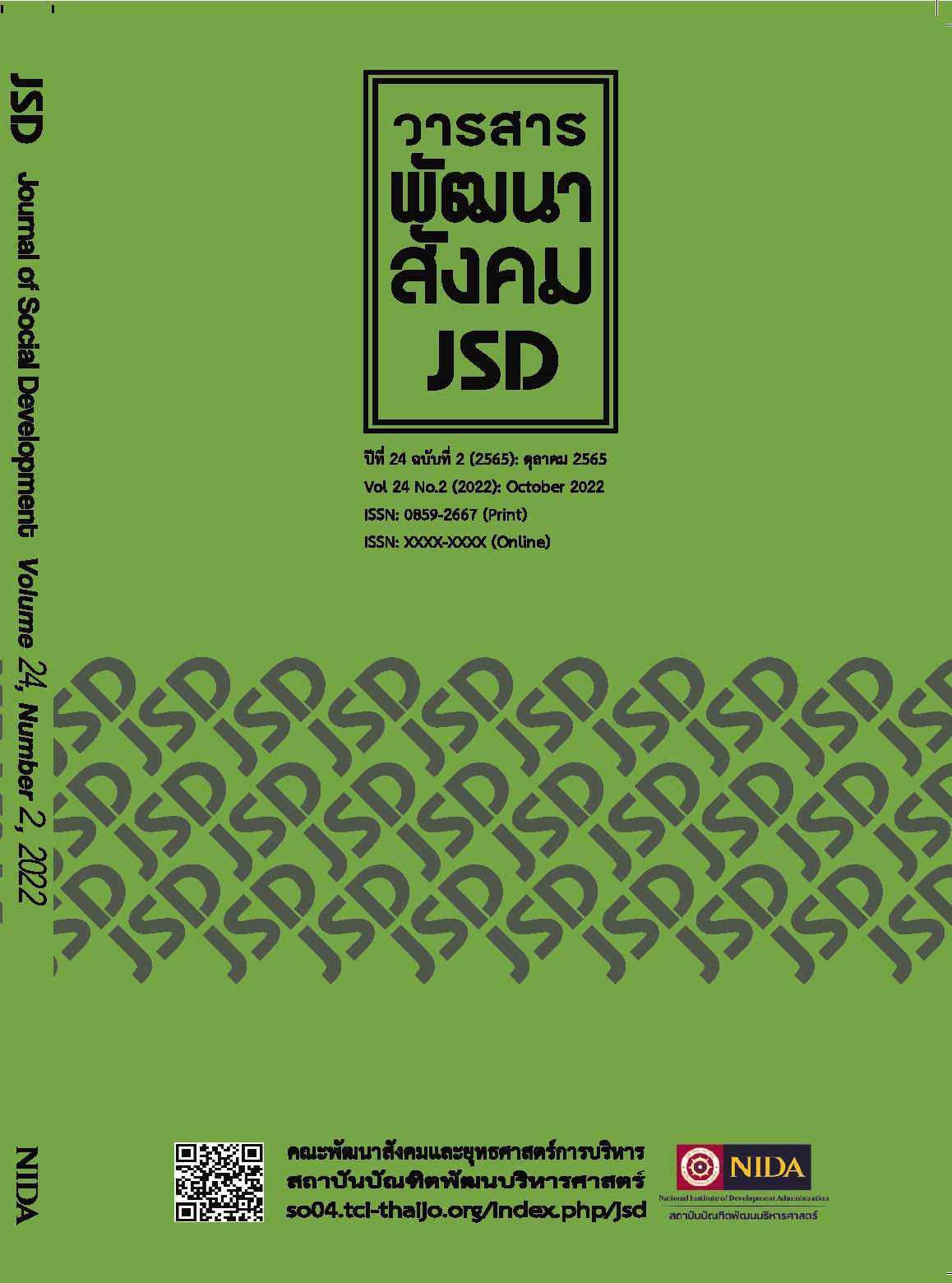Anxiety about people's impact and adaptation under the COVID-19 epidemic situation in the area of Ranong Province.
Main Article Content
Abstract
This research article the objective of this study was to study the anxiety, impact, and adaptation to the COVID-19 epidemic among people in Ranong province. Both quantitative and qualitative model research were used, with the research instrument being a questionnaire/interview form. In addition to visiting the area for in-depth interviews with the sample groups who are important informants in Ranong province, the samples were chosen by drawing lots from three large, middle, and small districts, namely: large districts, Kapur District, Kraburi, medium-sized districts, and small districts. is Suk Samran District, totaling 400 households. The data was analyzed using a statistical value, which was expressed as a percentage. The results showed that: 1) the effects on the economy were that the samples had lower incomes; 2) the health aspects resulted in an increase in infection prevention and health care for the members of the household; 3) for society and environmental issues, joint activities of 4) Information technology makes access to the most news sources such as television and newspapers difficult. 5) Education means students have to study online at a higher level. The anxiety of people suggested that there were five aspects which were: 3) On economic issues, the majority of the anxiety is sometimes about being laid off/unemployed; on health issues, anxiety is the most common risk of COVID-19; on social and environmental issues, sometimes anxiety when having to go out to attend community events such as funerals, ordinations, and weddings; 4) on information technology, anxiety is most often about being overly informed of COVID-19; and 5) on education issues, sometimes anxiety feels hectic or tired in preparation or during the course.
Article Details

This work is licensed under a Creative Commons Attribution-NonCommercial-NoDerivatives 4.0 International License.
References
Alon, T, M Doepke, J Olmstead-Rumsey & M Tertilt (2020), “The Impact of COVID-19 on Gender Equality”, Covid Economics:Vetted and Real-Time Papers, Issue 4, London: CEPR Press.
Avathip Wa. (2020). COVID-19 and learning to change health behaviors today [In Thai]. Journal of the Health Education Professional Association, 1(35), 24-29.
Stuart J.Barnes. (2020). Information management research and practice in the post-COVID-19 world. International Journal of Information Management. Retrieved from https://www.sciencedirect.com/science/article/pii/S0268401220309956
Boonchom Sri Sa-saat. (2013). Statistical Methods for Research [In Thai]. Volume 1 (5th ed.). Bangkok: Suwiriyasan.
Department of Mental Health. (2020). New Normal New way of life [In Thai]. Retrieved from https://www.dmh.go.th/news/view.asp?id=2288
Department of Mental Health. (2021). Coronavirus disease 2019 (COVID-19) [In Thai].
Retrieved from https://ddc.moph.go.th/viralpneumonia/index.php
Gigolo. (2020). Penetrating 3 aspects of decision making that has changed until becoming a new behavior of consumers (New Normal) after the end of COVID-19
[In Thai]. Retrieved From https://www.marketingoops.com/reports/research/new-normal-after-end-covid19/
International Security Division, Office of the National Security Council. (2020). International security situation after the COVID-19 outbreak [In Thai]. Security Perspective Journal, (4), 49-58.
Jaileawma, P. (2020). A study of new normal living behavior during The COVID-19 crisis appearing on the social media [In Thai]. (B.S. Thesis in Geography). Naresuan University.
Lagunaa, L., Fiszmana, S., Puerta, P., Chayab, C. & Tárregaa, A. (2020). The impact of COVID19 lockdown on food priorities. Results from a preliminary study using Social media and an online survey with Spanish consumers. Food Quality and Preference, (86). Retrieved from
https://www.sciencedirect.com/science/article/pii/S0950329320302974?via%3Dihub
Roy, Sr. C., & Andrews, H. (1999). The Roy adaptation model (2nd ed.). Stamford: Appleton & Lange.
Mikolai, J., Keenan, K., & Kulu, H. (2020). Intersecting household level health and socio-economic vulnerabilities and the COVID-19 crisis: An analysis from the UK.
SSM – Population Health, (12). Retrieved from https://www.sciencedirect.com/science/article/pii/S2352827320302652
Donthu, N. & Gustafsson, A. (2020). Effects of COVID-19 on business and research.
Journal of Business Research, (117). 284-289. Retrieved from. https://www.sciencedirect.com/science/article/pii/S0148296320303830


